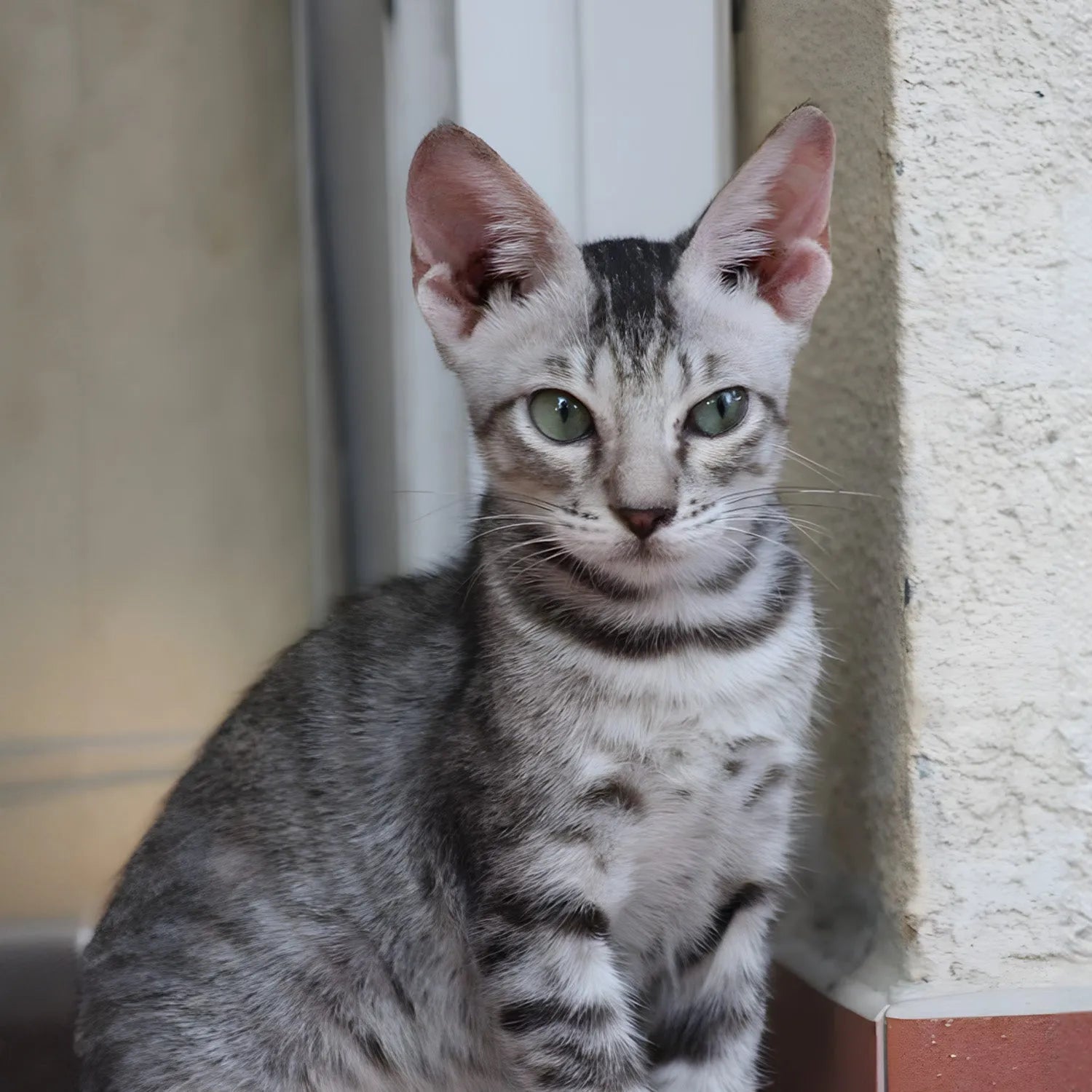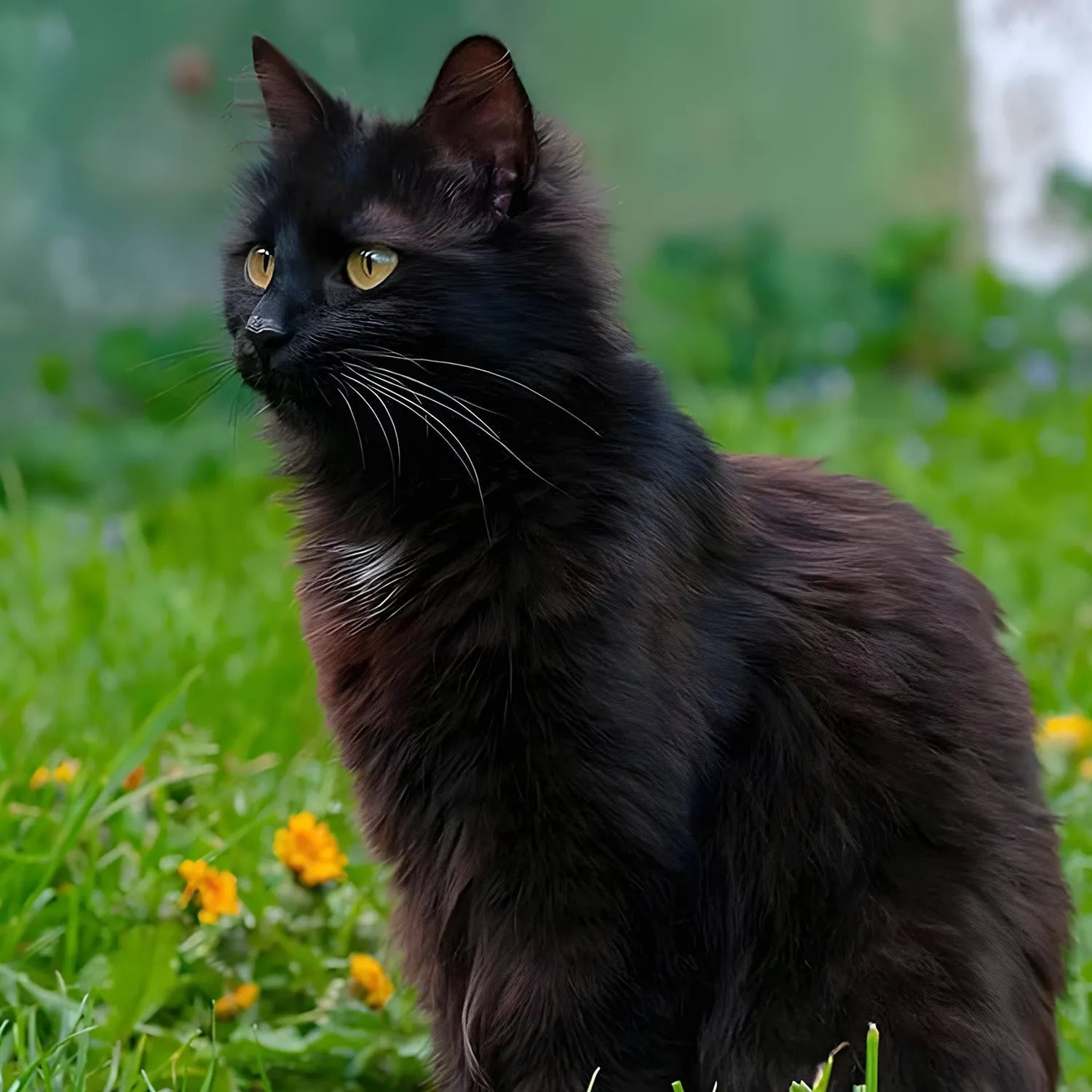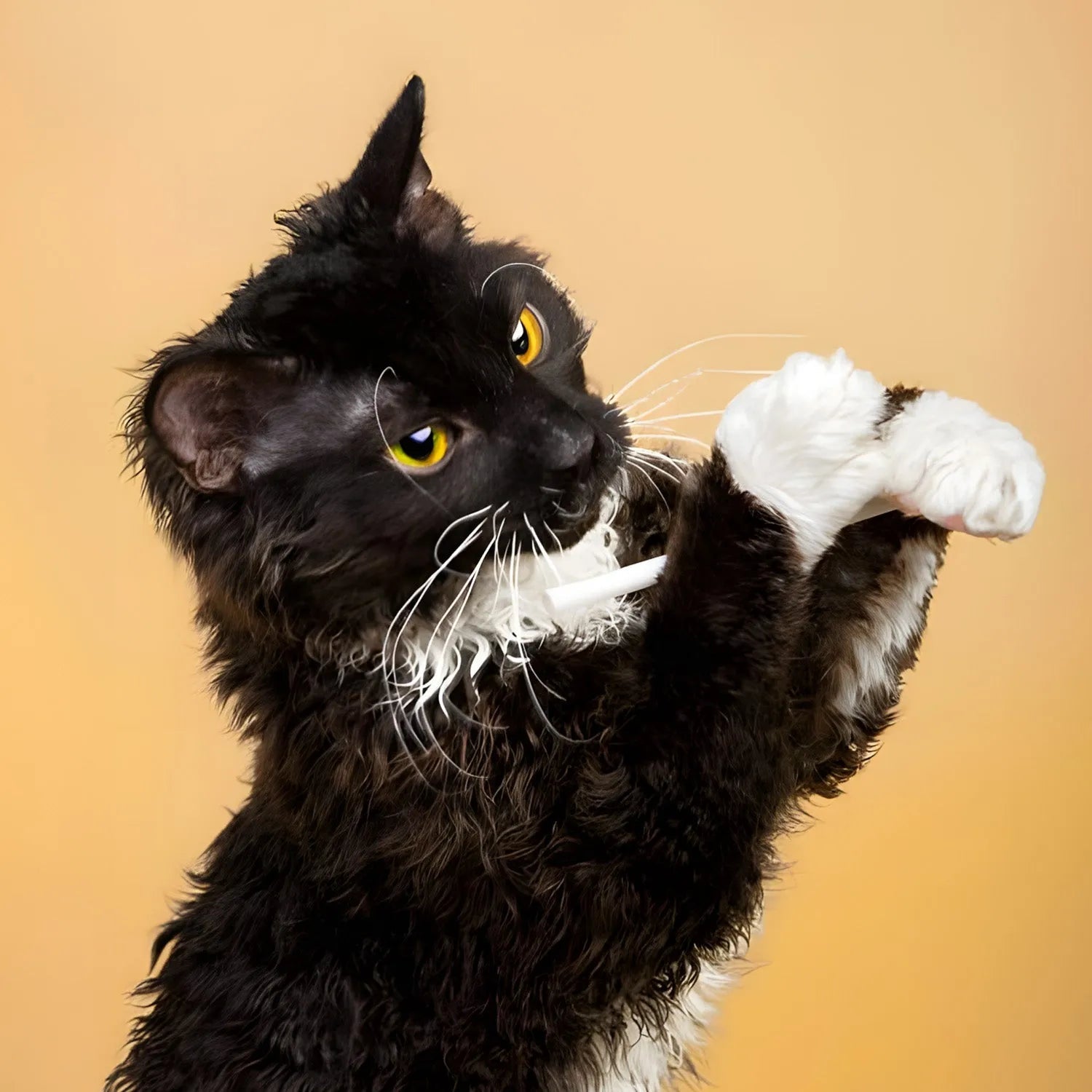Savannah: The Exotic and Energetic Wildcat Hybrid
Introduction
The Savannah cat is a striking and exotic breed, known for its wild appearance, large size, and active, energetic nature. Developed from crossing a domestic cat with a serval (a wild African cat), the Savannah boasts long legs, large ears, and a beautifully spotted coat that gives it a wild, jungle-like appearance. Despite its exotic look, the Savannah is a loyal and affectionate companion that thrives on interaction and play. This breed is not for everyone due to its high energy levels and specific care needs, but for the right owner, the Savannah offers a unique and rewarding experience. In this blog, we’ll explore the Savannah cat’s lifestyle, behavior, grooming needs, and how it interacts with humans and other pets.
Ratings (1-5)
-
Environmental Adaptability: 3
-
Food Consumption: 5
-
Need for Companionship: 5
-
Trainability: 4
-
Tolerance of Children: 4
-
Ease of Domestication: 3
History and Origins
The Savannah cat breed was first developed in the 1980s when breeder Judee Frank crossed a domestic Siamese cat with a male serval, a wild African cat known for its tall, lean body and striking spots. The resulting kitten, named Savannah, was the first of this new hybrid breed, which quickly gained attention for its exotic look and wild ancestry.
Over the years, breeders continued to develop the Savannah by crossing servals with domestic cats, such as Bengals and Egyptian Maus, to create a breed that retained the serval’s wild appearance while being more manageable and affectionate. The breed was officially recognized by The International Cat Association (TICA) in 2001, and since then, Savannah cats have gained popularity among cat enthusiasts who appreciate their unique look and spirited personality.
Savannah cats are classified by "filial" generations (F1, F2, F3, etc.), which indicate how closely related they are to their serval ancestors. F1 Savannahs are the direct offspring of a serval and a domestic cat, while F2 and F3 Savannahs are further generations removed. The lower the filial number, the more serval traits the cat will have, both in appearance and behavior.
Physical Characteristics and Colors
Savannah cats are known for their striking, wild appearance. They are one of the largest domestic cat breeds, with long, lean bodies, long legs, and large ears that give them a wild and exotic look. Their coats are short and dense, often featuring bold, dark spots on a golden, silver, or smoky background, which closely resembles the coat of a serval.
-
Size: Savannah cats vary in size depending on their generation, with F1 and F2 Savannahs being the largest. Adult Savannahs typically weigh between 12-25 pounds, but some F1 males can weigh even more.
-
Coat Colors: Savannahs usually have a spotted coat, with colors ranging from golden brown to silver to black. The most common pattern is large, dark spots on a lighter background, similar to wildcats. Their eyes can be green, brown, or gold, adding to their exotic charm.
-
Ears and Legs: Savannah cats have large, rounded ears that are set high on their heads, giving them a wild look. Their long, powerful legs allow them to jump to impressive heights, making them natural athletes.
Lifestyle and Behavior
Savannah cats are incredibly energetic and playful. They have a lot of the wild serval's traits, including high levels of curiosity and athleticism. These cats need plenty of stimulation, both mentally and physically, to stay happy. Savannahs are known for their ability to jump several feet in the air, often perching on high shelves or counters, and they enjoy interactive play that challenges their minds.
Despite their wild ancestry, Savannahs are also affectionate and loyal to their owners. They tend to bond strongly with their human family and will often follow their owners from room to room, much like a dog. However, their high energy levels mean they are not content to sit quietly all day—they need to be active and engaged. Savannahs do best in homes where they can receive plenty of attention and have room to explore.
These cats are known for their intelligence and can be quite mischievous if they become bored. Owners should be prepared to provide plenty of toys, climbing trees, and interactive play to keep their Savannah entertained. Many Savannahs also enjoy playing in water, and some can be trained to walk on a leash or even fetch toys.
Trainability and Intelligence
Savannahs are highly intelligent cats and can be trained to follow commands, perform tricks, and walk on a leash. They are curious by nature and enjoy learning new things, making them ideal candidates for interactive games and puzzle toys. With consistent positive reinforcement—like treats and praise—Savannahs can be trained to do a variety of tasks, such as sitting, fetching, and responding to their names.
Their intelligence, combined with their wild instincts, means that Savannahs can be more challenging to train than some other domestic breeds. They are independent thinkers and may not always follow commands if they are not in the mood. Patience and creativity in training sessions are key to keeping a Savannah cat engaged and happy.
Social Behavior and Human Interaction
Savannah cats are social and enjoy interacting with their human family members. They are known for being affectionate with their owners and can form strong bonds, often following their humans around the house like a shadow. They are also known for their loyalty, sometimes forming particularly close relationships with one specific person in the household.
Despite their affectionate nature, Savannahs are not lap cats. They enjoy being near their family but prefer to stay active rather than lounging for long periods. Savannahs are excellent companions for active individuals or families who can meet their need for physical and mental stimulation.
Savannahs can be cautious or shy around strangers, particularly lower-generation cats (like F1 and F2 Savannahs), which retain more wild serval traits. However, once they warm up to new people, they are friendly and engaging.
Compatibility with Children and Other Pets
Savannah cats are generally good with children, especially older kids who understand how to interact with cats respectfully. Because of their high energy levels and playful nature, Savannahs can be great playmates for active children. However, younger children should always be supervised when interacting with a Savannah, as these cats can be strong and may accidentally knock over a smaller child during play.
Savannahs can get along well with other pets, including dogs, but early socialization is key. Because they have a high prey drive, smaller pets like birds, hamsters, or reptiles may not be safe around Savannahs. Proper introductions and supervised interactions are essential to ensure a harmonious multi-pet household.
Grooming and Care
The grooming needs of a Savannah cat are relatively low due to their short, dense coat. Weekly brushing is usually sufficient to remove loose hairs and keep their coat looking sleek and shiny. Savannahs are not prone to excessive shedding, making them a relatively low-maintenance breed in terms of grooming.
In addition to regular brushing, Savannahs require routine dental care, ear cleaning, and nail trimming to maintain their overall health. Because of their active nature, it's essential to provide Savannahs with plenty of opportunities for exercise and mental stimulation to keep them healthy and happy.
Health and Lifespan
Savannah cats are generally healthy, but like all breeds, they can be prone to certain health conditions. Because they are a hybrid breed, some Savannahs may be at risk for health issues common in servals, such as kidney problems. Regular veterinary check-ups and a balanced diet are essential to maintaining their health.
Savannah cats typically live 12-20 years or more, depending on their generation and care. F1 and F2 Savannahs may have shorter lifespans due to their closer relation to servals, while later generations tend to live longer, healthier lives.
Environmental Adaptability
Savannah cats are indoor cats that require a stimulating environment. They thrive in homes where they have plenty of space to explore and play. While they can adapt to apartment living, they do best in homes with access to high perches, climbing trees, and plenty of room to run and jump.
Because Savannahs are intelligent and curious, they can easily become bored in a dull environment. Owners should provide plenty of toys, interactive puzzles, and opportunities for play to keep their Savannahs entertained. Some owners even build secure outdoor enclosures (catios) where their Savannahs can safely explore the outdoors.
Feeding Requirements
Savannah cats are active and require a diet that supports their energy levels. High-quality, protein-rich cat food is recommended to meet their nutritional needs. Some owners prefer to feed their Savannahs a raw or partially raw diet to mimic the diet of their wild ancestors, but this should always be done in consultation with a veterinarian
Fresh water should always be available, and owners should monitor their Savannah’s weight to prevent obesity. Given their large size and high activity levels, Savannahs may require more food than an average domestic cat, but their diet should be balanced to avoid overfeeding.
Conclusion
The Savannah cat is a unique and exotic breed that combines the wild beauty of a serval with the affectionate nature of a domestic cat. Their high energy, intelligence, and curiosity make them a challenging but rewarding pet for the right owner. If you’re looking for a lively, interactive cat that will keep you on your toes and provide endless entertainment, the Savannah might be the perfect fit for you.
For more information about other cat breeds and pet care tips, stay tuned to our blog!
References:
-
Johnson, S. (2021). "The Exotic and Energetic Savannah Cat." *Journal of Feline Studies*, 35(3), 215-230.
-
Thompson, A. (2020). "Caring for Your Savannah Cat: A Comprehensive Guide." *Cat Lover’s Magazine*, July issue, pp. 25-33.
-
Harris, E. (2019). "Health and Wellness in Savannah Cats." *Veterinary Journal*, 79(2), 123-137.


